Oxford University has the 'world's hardest test' — here's how to answer the questions
80 students from Oxford University sit the All Soul's exam - generally only one is selected to receive a fellowship

The entrance exam for All Souls College at Oxford University has been called the world's hardest test.
That's because it's nearly impossible to revise for. The questions are abstract and there are no right or wrong answers.
Only a twentieth of the Oxford graduates who take the test are invited to continue the process.
The prize is a 7-year fellowship at Oxford University, which typically goes to two students each year.
The test comes up in September, so a new batch of applicants have just run the gauntlet.
We spoke to someone who both passed their own All Souls exam and now grades them. Our source gave us the inside track on what examiners look for. When you're done, check out all the past exam questions here.
Students sit two general papers, and two papers from their specific discipline. It's mostly humanities and social science subjects.

Here's the examiner: "All the best candidates demonstrate a strong command of their subjects, and make compelling arguments in clear prose."

"The scripts that really stand out usually have something more that is striking: flashes of wit, sensitivity to detail, argumentative force."

"A significant challenge is to strike a balance between playing to your strengths and stretching beyond your comfort zone."
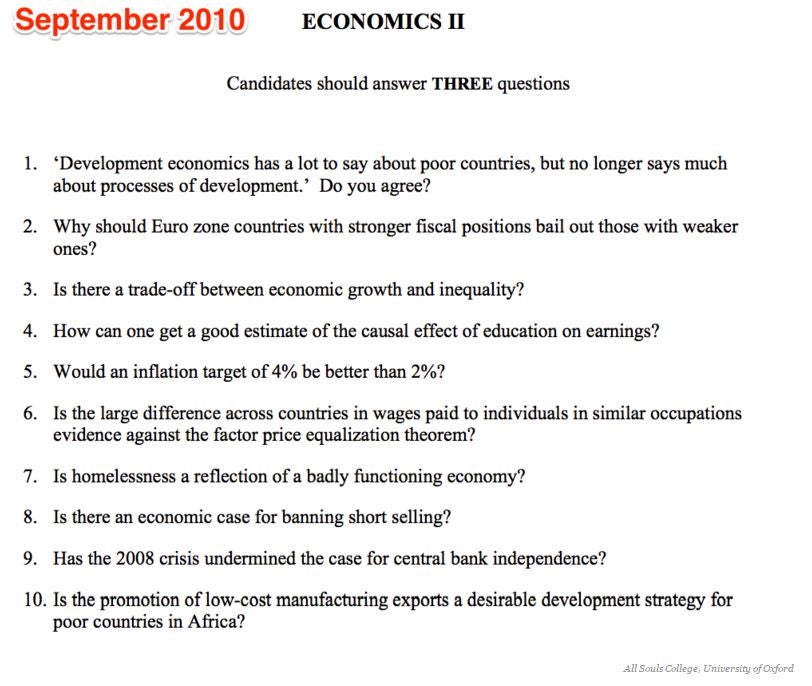
They aren't yes or no answers, so it's hard to know what constitutes failure: "It's not an exam you can fail, and there's no single way to be elected, so in that sense there are no 'mistakes'."
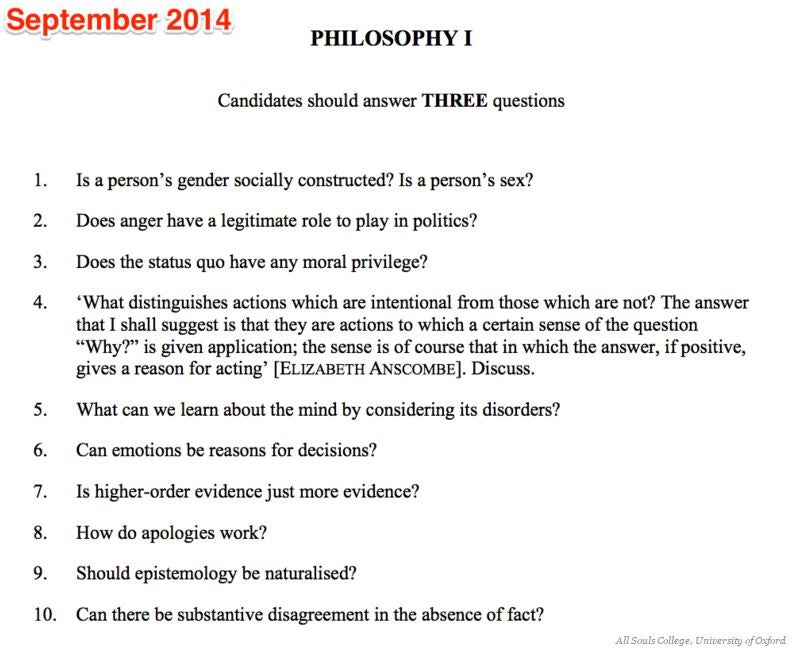
All subjects are meant to be as difficult as one another: "Though the classicists have the unenviable task of sitting an additional translation exam."
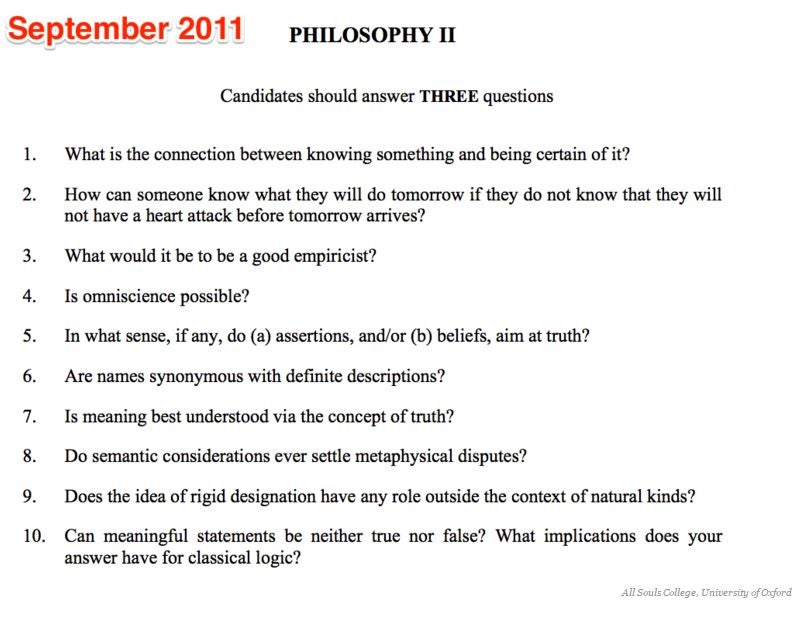
"Usually about 80 candidates sit the exam, and two are elected to fellowship. Occasionally just one candidate is elected."
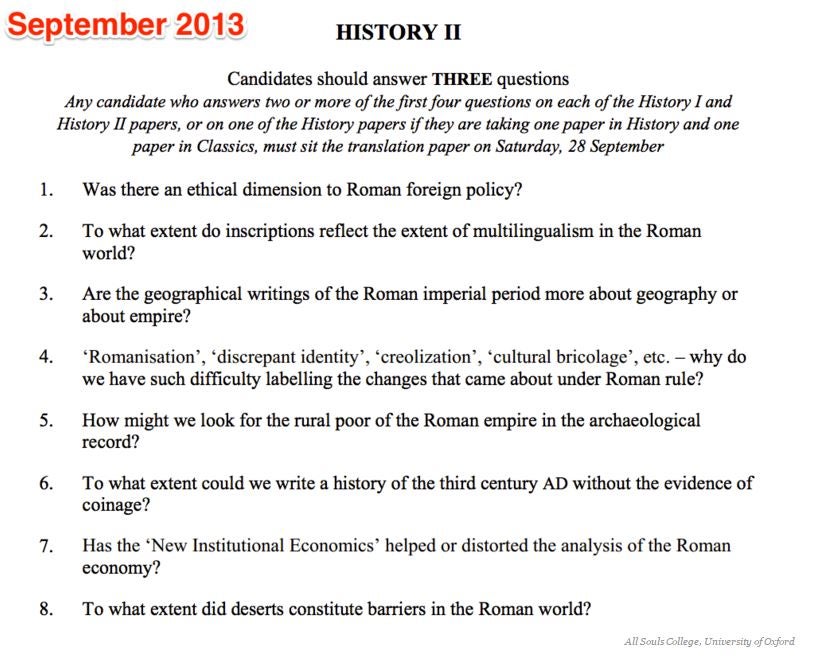
The subjects are all humanities and social science subjects.

The tiny proportion of candidates that pass an exam are invited to present a viva: A spoken explanation of their answers.
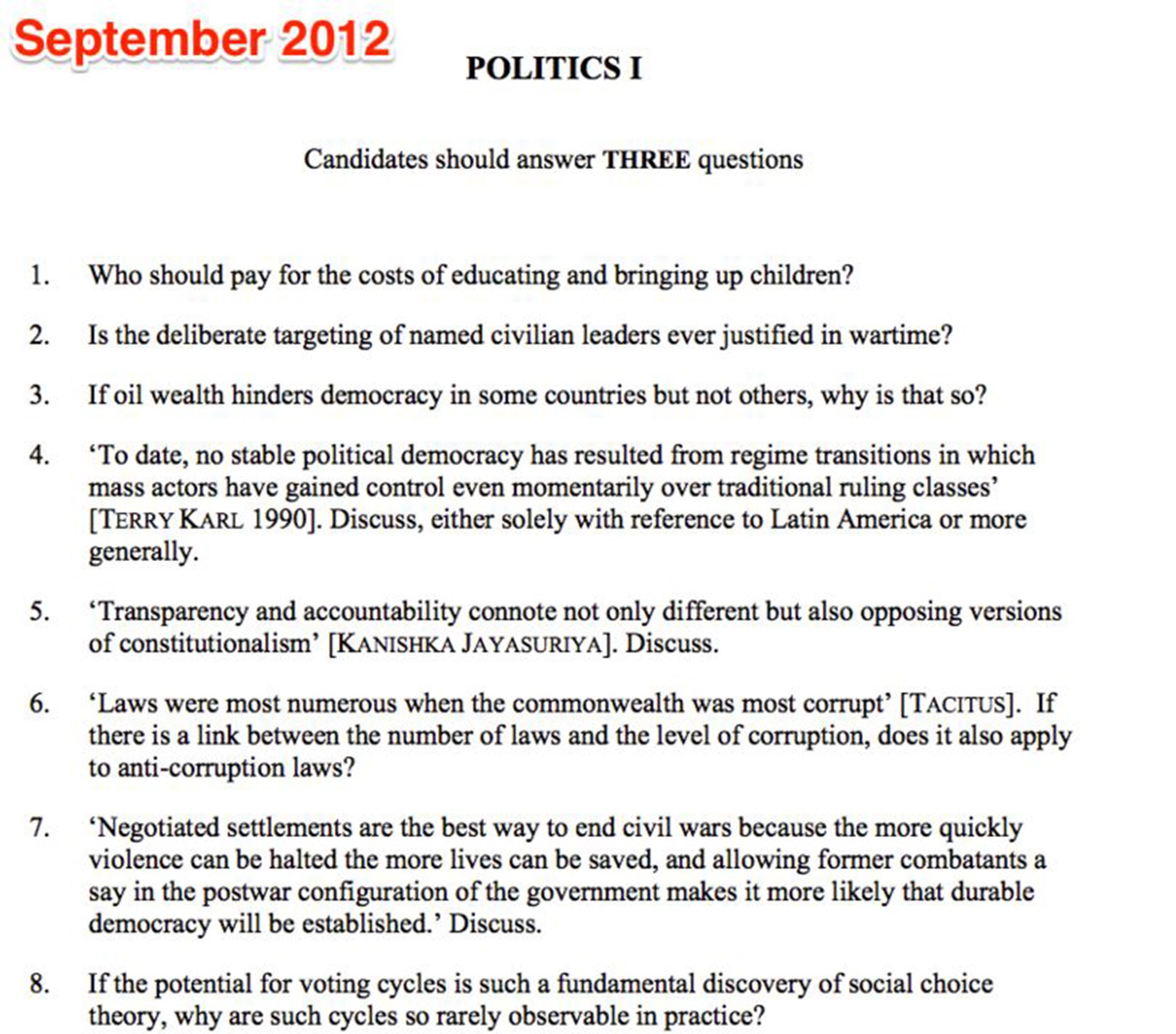
"The viva can be a somewhat bewildering experience, because most of the fellowship (there are about 80 fellows at any one time) attends."
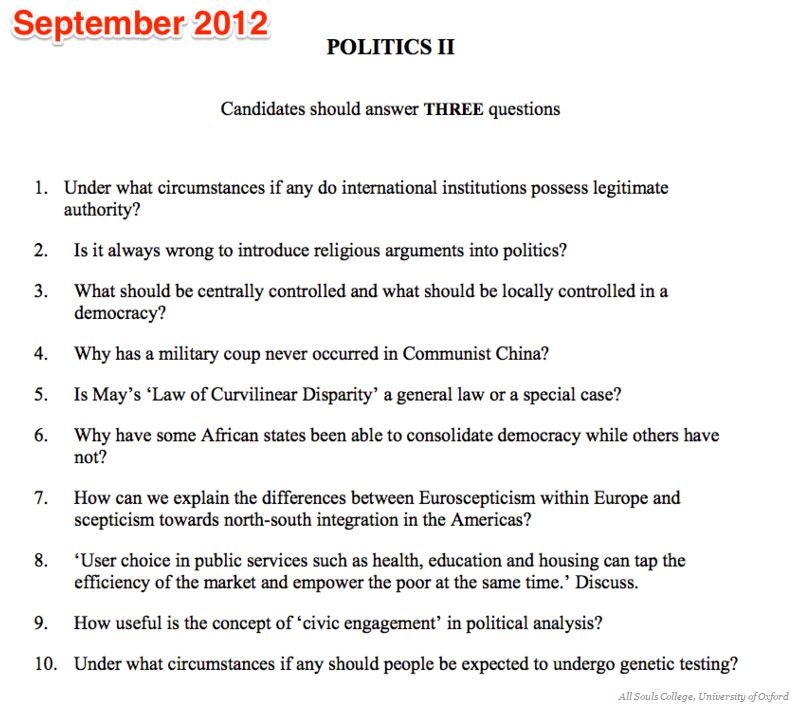
Famous fellows include Isaiah Berlin, while British prime minister Harold Wilson did not pass the exam.
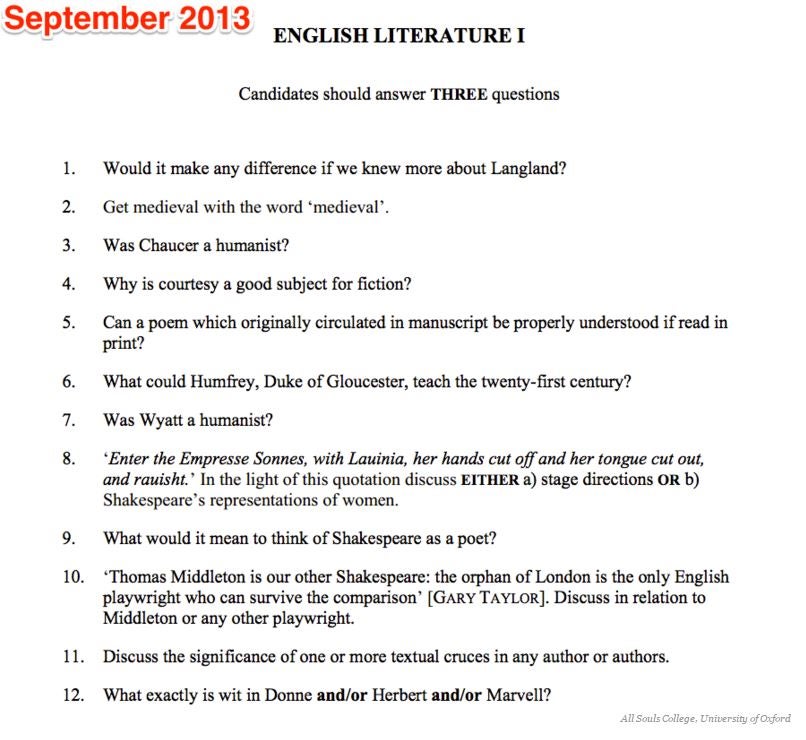
Until 2010, candidates also took an essay, lasting three hours, in which they had to write about just one word, like "innocence" or "error" .

Fellows are elected for seven-year periods, and get a stipend of about £15,000 per year if they're conducting academic work.

That's what one of those unenviable translations looks like for students of Classics.
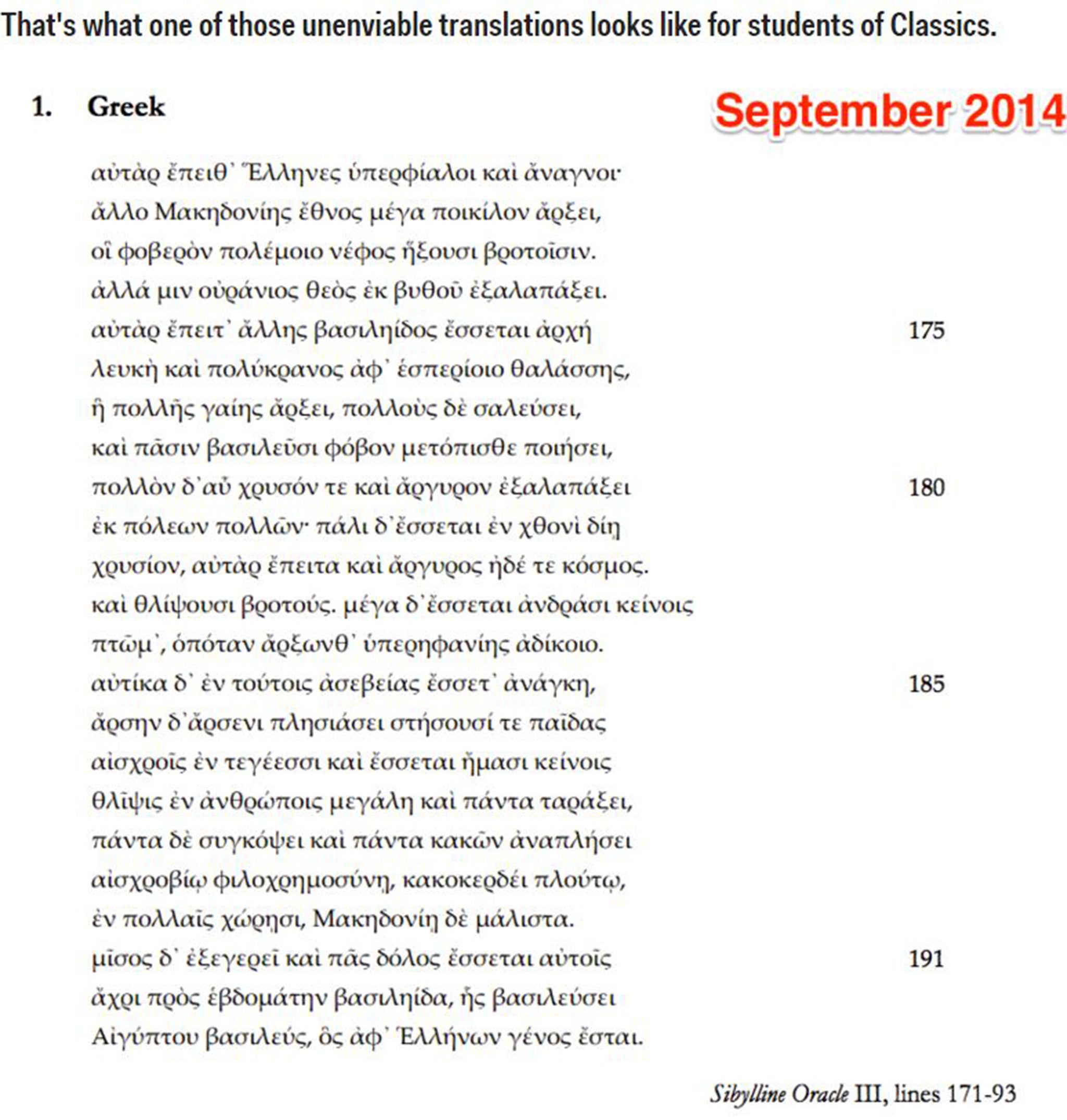
Read more:
• CEO of Credit Suisse nails banking industry's problem
• Amazon is opening a physical bookstore
• Why the EU referendum doesn't matter
Read the original article on Business Insider UK. © 2015. Follow Business Insider UK on Twitter.
Join our commenting forum
Join thought-provoking conversations, follow other Independent readers and see their replies
Comments
Bookmark popover
Removed from bookmarks